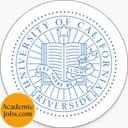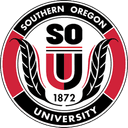Instrument System/Test Engineer II
Position Highlights
The selected candidate will contribute to research efforts involving both ground-based and space-based telescopes. They will collaborate closely with mechanical, software, and optical engineers to support the objectives of the Directors and Principal Investigators leading various projects. Success in this role requires working effectively within multidisciplinary teams to deliver complex, high-precision optomechanical systems.
The candidate must have hands-on experience in building and assembling hardware, with a working knowledge of electrical, optical, mechanical, and software systems. This broad technical foundation is essential for supporting the development and integration of delicate space instrumentation. Responsibilities include supporting integration and test (I&T) activities, and developing documentation that defines subsystem design baselines. Strong communication skills are essential, as the candidate will represent the engineering team professionally in both internal and external engagements on behalf of Steward Observatory. They must be able to incorporate input from engineering working groups and coordinate with project leads to ensure that integration and testing requirements are clearly defined, implemented, and validated.
Outstanding UA benefits include health, dental, and vision insurance plans; life insurance and disability programs; paid vacation, sick leave, and holidays; UA/ASU/NAU tuition reduction for the employee and qualified family members; retirement plans; access to UA recreation and cultural activities; and more!
The University of Arizona has been recognized for our innovative work-life programs. For more information about working at the University of Arizona and relocations services, please click here.
Duties & Responsibilities
- Perform hands-on evaluation and troubleshooting of failed optical, opto-mechanical, and electrical assemblies using test and measurement equipment to identify root causes down to the component level.
- Apply systems engineering principles to support the integration and verification of complex subsystems, ensuring traceability between requirements, design, and test outcomes.
- Conduct manual testing procedures, including point-to-point continuity testing, and diagnose issues using technical expertise rather than relying on predefined troubleshooting guides.
- Collaborate with senior engineers, test technicians, and quality assurance personnel to evaluate, repair, and process failed assemblies through established Repair & Return workflows.
- Support continuous process improvement (CPI) initiatives by identifying inefficiencies and contributing to the development of more robust integration and testing workflows.
- Utilize working knowledge across electrical, optical, mechanical, and software domains to support the development and integration of delicate space instrumentation.
- Interpret and work from detailed assembly drawings, schematics, and system-level documentation to support integration and test activities.
- Maintain strict adherence to Electrostatic Discharge (ESD) protocols and ensure compliance with all ESD handling procedures.
- Operate and interpret results from test and evaluation equipment such as digital multimeters (DMMs), oscilloscopes, network analyzers, and spectrum analyzers.
- Apply industrial engineering practices to optimize assembly, integration, and test processes, including workflow analysis, resource planning, and risk mitigation.
- Use Microsoft Office 365 tools (Word, Excel, PowerPoint, etc.) to document findings, prepare reports, and communicate effectively with project teams and stakeholders.
- Participate in regular technical meetings to present findings, discuss integration and test progress, and collaborate on solutions with engineering teams, project leads, and quality assurance personnel.
Knowledge, Skills, and Abilities
- Knowledge of V7V
- Knowledge of I&T
Minimum Qualifications
Bachelor's degree or equivalent advanced learning attained through professional level experience required. Minimum of 3 years of relevant work experience, or equivalent combination of education and work experience.
Whoops! This job is not yet sponsored…
Or, view more options below
View full job details
See the complete job description, requirements, and application process
Express interest in this position
Let The University of Arizona know you're interested in Instrument System/Test Engineer II
Get similar job alerts
Receive notifications when similar positions become available











